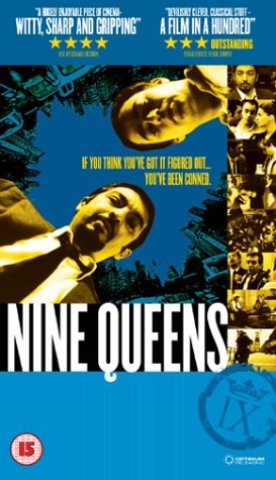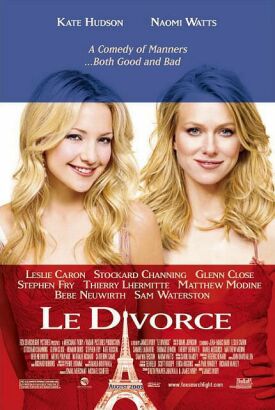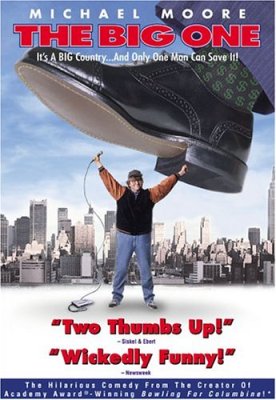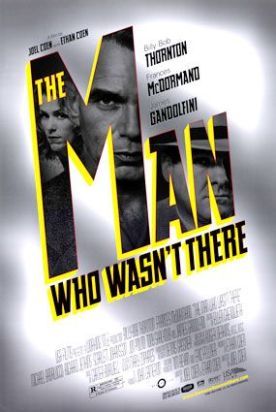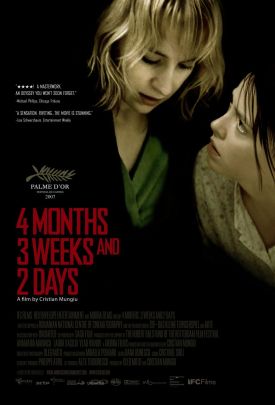Nine Queens
About five minutes after the lights came up, the credits started rolling and the closing theme music — which was also intimately linked with one of the picture’s cleverly- managed leitmotifs — began to play, I thought I had spotted the fatal flaw in the intricately-crafted plot of Nine Queens, a brilliantly engaging new Argentine movie written and directed by Fabián Bielinsky. I’m still not sure it’s not a flaw either. Without giving too much away, I can say that, at its crucial moment, one of the two con-men (played by Gastón Pauls and Ricardo Darín) with whose relationship it concerns itself could have done much better for himself by behaving honestly — relatively honestly anyway — rather than by continuing with his con. And he must have known it. Yet he continues with his attempted swindle.
Wouldn’t any rational person minimize his risk of being caught, and in this case also save himself a lot of grief, if he believed he could gain as much or more by acting honestly as he could by acting dishonestly? It is the greatest tribute to Mr Bielinsky’s movie that this objection is (a) likely to occur to us only after it is over and (b) not necessarily valid. So skillfully has he painted the portrait of the con-artist in question that we can just about believe that he would not have taken the honest course. For this is a man who has been presented to us as one who doesn’t really believe that honesty exists. When his younger partner asks him, “Do you think everybody is like you?” he replies that he does. Those who seem honest just “haven’t got the balls” to do what he does.
At the same time, he denies that he is a thief — just as, at some point, every other thief in the picture does. A thief is someone who uses a gun, he says, to take your money by force, whereas he only uses his cleverness. What he does to others they would do to him, if they were as clever as he is. So too he explains to the younger man that he is involved in litigation with his sister, Valeria (Leticia Bredice), over a legacy which he has pretty clearly cheated her out of. To him, however, he simply “saw an opportunity” and took it before she could. “I was quicker than she was.” In what is perhaps the film’s most unforgettable moment, he takes his young apprentice into the street and for just a moment shows him, and us, the world through his eyes: full of people with no other purpose in life than to get the better of each other.
No wonder he feels he can’t risk being honest, which for him means being without an angle, a stratagem of deceit for his protection against all those who, he thinks, are trying to get the better of him. Later, when he thinks he sees that his partner is romantically interested in his sister, he tries to warn him away from her: “You think she’s a saint,” he says. “There are no saints.” Though he comes to feel something as close to affection as he can feel for this young man, he insists that he is really a coward. “The worst kind. You want money, but you won’t get your hands dirty.” In other words, there is only one way to make your way in the world, and that is his way. Everything else is just hypocrisy.
It is a remarkable excursion into the mixture of sagacity and self-deception that makes up what used to be called the criminal mind. It is of the essence to them to deny to themselves that they are criminals at all. They are merely defending themselves against those who would do the same or worse to them if they had a chance. So at every stage of his progress in the movie, with every person he meets, a similar process takes place of rapid calculation: how can he flatter or deceive someone into getting what he wants. And with each success, as he sees it, he becomes more and more persuaded of his own imperviousness to flattery and deceit.
But, in addition to being interesting in itself, Bielinsky’s presentation of this aspect of his hero’s character also helps to forestall the criticism mentioned above and explains how the film’s master scam, a sort of Argentinian version of The Sting, is able to achieve its object. The performances of both Mr. Pauls and Mr Darín (who recently starred in the equally impressive Son of the Bride) in the principal roles are beyond praise, and those who believe, as I do, in Hitchcock’s saying that plot is the soul of the cinema have a treat in store.
Discover more from James Bowman
Subscribe to get the latest posts to your email.

